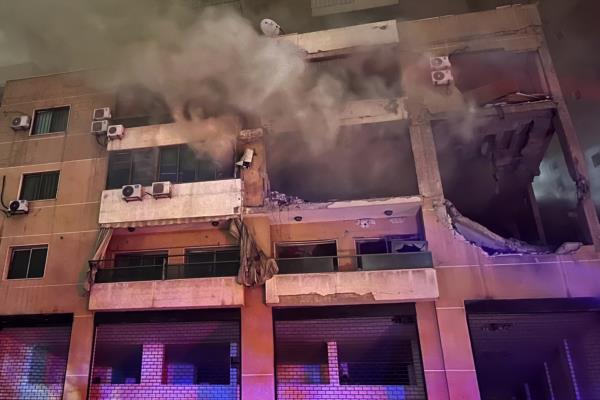
Title: Israeli Concerns Rise Amidst Ongoing Security Threats in the Middle East
In the wake of the recent double bombing in Kerman, tensions are rising in the Middle East as Israel navigates a complex security landscape. While the discussions surrounding the incident have not been the central focus, both Israel and the United States have denied any involvement. The Israeli government, however, remains concentrated on addressing the ongoing conflict in Gaza.
With seven battalions actively engaged against Hamas, Israel's attention is currently focused on curbing the constant exchange of rocket fire with Hezbollah and other Lebanese factions. The situation has left approximately 85,000 Israelis stranded in northern Israel, unable to return home due to the prevailing security threat. Additionally, the government provides temporary accommodation in hotel rooms for around 250,000 Israelis who find themselves displaced by the conflict.



Hezbollah's leader, Hassan Nasrallah, labeled the assassination of Saleh al-Huriri as a 'major dangerous crime' and stated that they cannot stay silent in response. While no immediate signs of retaliatory action have surfaced, Israel remains vigilant and states their preparedness for any scenario. Rear Admiral Daniel Hagari of the Israeli Defense Forces (IDF) assured that the IDF is in a high state of readiness both defensively and offensively.
Interviews with Israeli authorities, including Defense Minister Yov Galant and former Defense Minister Benny Gantz, revealed concerns regarding Hezbollah's capabilities. Having evolved significantly since the 2006 conflict, Hezbollah presently possesses advanced missile systems and holds substantial control over Lebanon—contributing to the nation's current state of instability.
The broader terror campaign, orchestrated by Iran through proxy groups such as Hamas, Hezbollah, and the Houthis, raises concerns not only for Israel but also for the United States. Iran's ultimate goal is to instill fear among Israelis and displace the state of Israel entirely. The frequent attacks against American interests and international vessels in Iraq and Syria can be seen as part of Iran's attempts to force the withdrawal of US forces from the region.
Israelis live under the constant threat of terrorist groups that are well-funded, well-trained, and well-equipped. Their primary objective is to annihilate the Israeli population, placing the nation in a perpetual state of insecurity. In light of these circumstances, Israel asserts the necessity for the time and space required to combat Hamas effectively.
While Hezbollah's leader, Nasrallah, gave a somewhat tempered response to the airstrike targeting Aruri, it is understandable that he would address the incident, considering its proximity to his location.
As tensions rise in the Middle East, Israel faces an intricate security landscape. The ongoing conflicts and terror campaigns orchestrated by Iran and its proxy groups continue to pose a significant threat to the region's stability, warranting a unified front in addressing these challenges.







